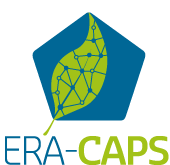Trilateral initiative for enhancing salt tolerance in rice
- Acronym TRIESTER
- Duration 1 May 2007 - 1 May 2010
- Project leader Blanca San Segundo, CSIC Plant Molecular Genetics Laboratory, Spain
-
Other project participants
Hervé Sentenac, INRA Agro Montpellier, France
Emmanuel Guiderdoni, French Agricultural Research Centre for International Development CIRAD, France
Arno Krotzky, Metanomics GmbH [Company], Germany
Bernd Müller-Roeber, MPI for Molecular Plant Physiology, Germany
Tamara Maes, Oryzon Genomics [Company], Spain
Francisco Quintero, CSIC Institute of Natural Resources and Agrobiology, Seville (IRNAS), Spain
Alonso Rodriguez-Navarro, Technical University of Madrid, Spain
Manuel Talón, Valencian Institute for Agricultural Research IVIA, Spain
-
Funding
National Institute for Agricultural Research (INRA), France
Research Centre Juelich – Project Management Juelich (FZJ-PTO) on behalf of the Federal Ministry of Education and Research (BMBF), Germany
Ministry for Education and Science (MICINN), Spain
- Total Granted budget € 1,485,317
Abstract
Soil salinity accounts for large yield losses in crops worldwide. Understanding how plants cope with high salinity in the environment is thus an issue of great agricultural importance. The proposed project exploits the full potential of the rice genome information to identify and characterize major determinants of salt tolerance in rice by i) surveying and functionally characterizing natural or induced allelic variation in genes involved in salt tolerance, and by ii) analysing particular components, signalling pathways and network integration in the plant response to salt stress. To discover new salt determinants, forward and reverse genetic technologies, and expression profiling in mutant rice collections will be used. The natural allelic variation of salt-associated genes will be approached by using EcoTILLING and comparative whole genome hybridization (CGH). The project also aims at the functional characterization of selected gene families involved in signal transduction, transcriptional control and ion homeostasis. For this, knockout and overexpressor rice lines will be generated and used for global expression analyses. The functional characterization of salt-associated genes (natural variant and mutagenized alleles) in heterologous systems (yeast, Xenopus) will be also approached. The project integrates genomic approaches with rice physiology and agronomical behaviour (electrophysiology, water content and osmotic adjustment, metabolite profiling in vegetative and grain tissues, growth and productivity under saline conditions in containment greenhouse conditions). The project also develops technologies and tools based on oligo-DNA microarrays (CGH), HTP gene validation and metabolite profiling. The knowledge generated in this project is required to integrate post-genomic research into suitable breeding programmes for the development of new salt-tolerant rice cultivars. Progresses in understanding tolerance to salinity in rice plants will benefit other cereal research programs.
